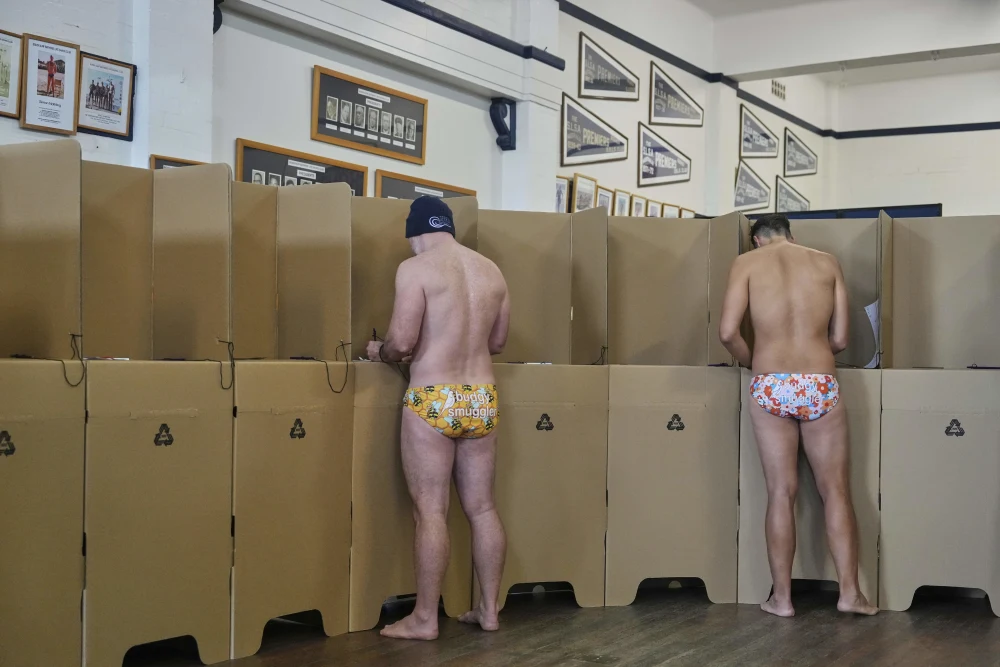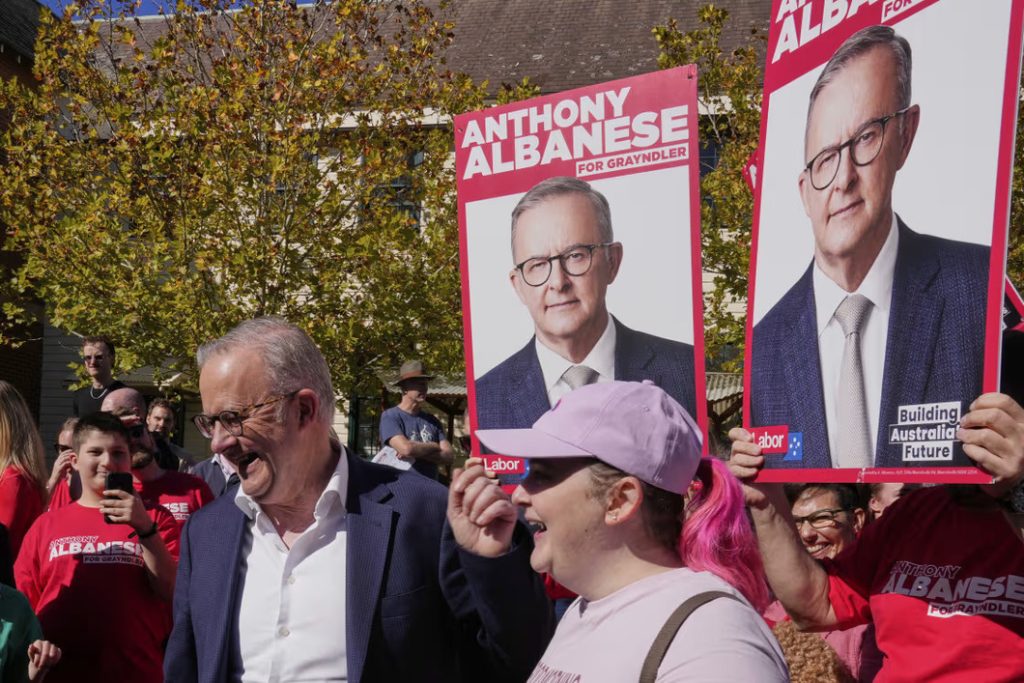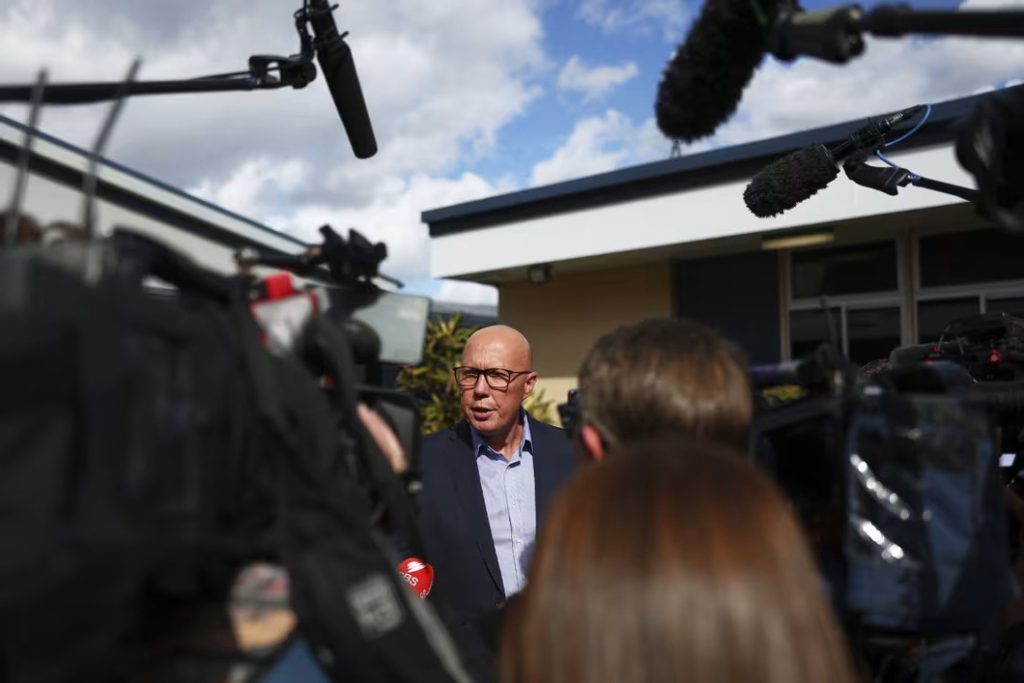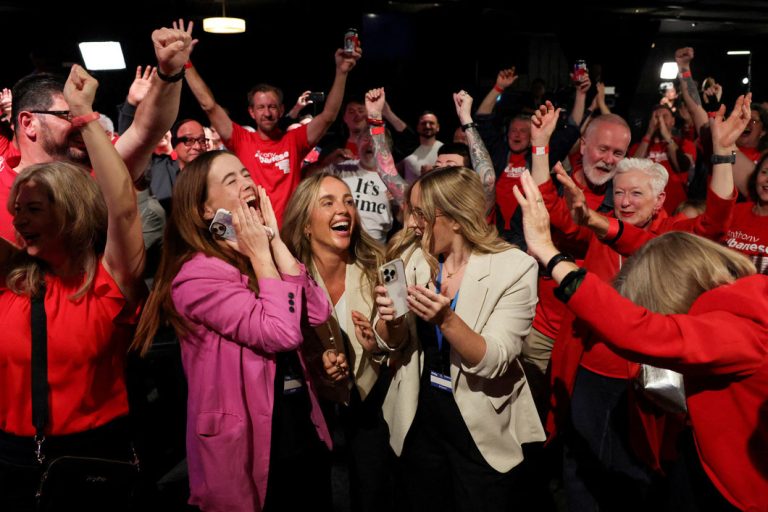Australia’s incumbent Prime Minister Anthony Albanese has secured a second term following a tightly contested general election on Saturday, according to projections from local broadcasters. The result marks a setback for the conservative coalition, whose close alignment with former U.S. President Donald Trump may have hurt its standing with voters.
Early estimates from the Australian Electoral Commission, reported by national broadcaster ABC, showed Albanese’s Labor Party ahead of Peter Dutton’s conservative Liberal-National coalition, with Labor projected to win at least 70 of the 150 seats in the House of Representatives.

“This isn’t the result we hoped for,” Dutton said during a speech at his party’s headquarters, noting that he had already called Albanese to offer his congratulations.
Independent and minor party candidates are expected to claim around 13 seats, suggesting that if Labor falls short of a clear majority, Albanese may need to negotiate with other groups to form a governing coalition.
Key issues for voters included the rising cost of living and a severe shortage of affordable housing, both compounded by persistently high interest rates. Relations with China, Australia’s key trading partner, also played a significant role in shaping voter sentiment.

In this election, many voters were more troubled by Donald Trump’s disruption of the global trade landscape, particularly his introduction of a 10% tariff on all Australian exports to the United States.
A poll released Wednesday by the Lowy Institute, an Australian think tank, revealed that more than 60% of Australians lacked confidence in the United States to act responsibly on the world stage.
Albanese, 62, first came to power in 2022, ending nearly a decade of conservative leadership. Emphasizing his working-class background, his campaign this time centered on promises of tax relief, support for first-time homebuyers, and an additional $5.5 billion investment in healthcare.
Until recently, Albanese appeared at risk of becoming the first Australian prime minister in nearly 100 years to serve only a single term, as his administration struggled with high inflation, a sluggish economy, and a worsening housing shortage—an issue magnified by his controversial purchase of a multimillion-dollar coastal mansion.

Following Donald Trump’s inauguration in January, Peter Dutton, 54, who had previously been ahead in the polls against rival Anthony Albanese, experienced a decline in support. Much of the backlash stemmed from his party’s campaign pledges—particularly on immigration—which many perceived as echoing Trump’s policies and those of his newly formed Department of Government Efficiency (DOGE).
In the weeks leading up to the election, sources within the Liberal Party told Reuters that growing public unease with Trump was prompting cautious voters to distance themselves from Dutton.
“Trump has been a wrecking ball for the conservative coalition,” said Andrew Carswell, former press secretary to ex-Prime Minister Scott Morrison, who was ousted in the last election, according to Reuters.
Albanese, by contrast, avoided bringing Trump into his campaign messaging. Instead, he urged voters to choose stability, saying on Monday, “The last thing you need is a volatile government.”
While Albanese has stopped short of directly criticizing Trump, he has continued to emphasize the importance of Australia’s alliance with the United States. Notably, he skipped Trump’s inauguration and has yet to make a visit to Washington.
A YouGov poll published Thursday forecast a Labor majority, projecting the party could secure up to 85 seats in the 150-member House of Representatives. The opposition was expected to lose a net 11 seats—potentially its worst electoral result since 1946.
Albanese’s victory follows a dramatic political comeback in Canada earlier this week, where Prime Minister Mark Carney returned to power amid public backlash over Donald Trump’s remarks suggesting Canada should become the 51st U.S. state.
Australia is among the few nations that mandate voting for all citizens aged 18 and over. Of the 18 million eligible voters, about 4.8 million had already begun casting ballots as early as Thursday, though most postal votes are set to be tallied after election day.

